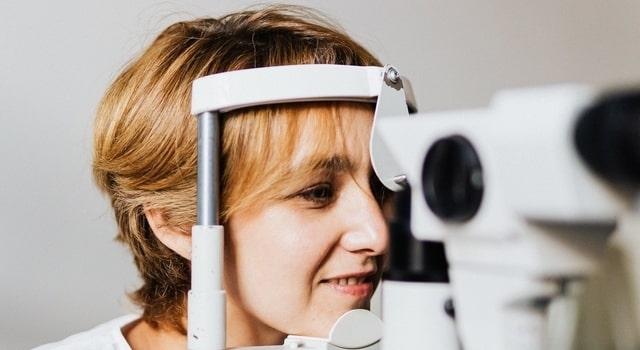 Glaucoma is a leading cause of blindness and vision impairment worldwide. In fact, about 80 million people worldwide are affected by the disease.
Glaucoma is a leading cause of blindness and vision impairment worldwide. In fact, about 80 million people worldwide are affected by the disease.
At North Park Vision Center, we believe that when it comes to glaucoma, prevention is the best cure. That’s why we’ve compiled our top tips to help you preserve your vision if you have glaucoma or are at risk of developing it.
But First, What is Glaucoma?
Glaucoma is an umbrella term for a group of eye diseases that slowly damage the optic nerve, the pathway connecting the eyes and brain.
The most common type of glaucoma is called open-angle glaucoma and is the milder form of the disease. Other types of glaucoma include secondary glaucoma, acute angle closure glaucoma and congenital glaucoma
Unfortunately, most cases of glaucoma don’t present with any symptoms in their early stages, so by the time patients notice a deterioration in their vision, the vision loss is irreversible.
The most significant risk factor for developing glaucoma is having high inner-eye pressure. Other risk factors include advanced age, a family history of glaucoma, ethnicity and certain medical conditions, including diabetes, high blood pressure, heart disease and sickle cell anemia.
The good news is that glaucoma-related blindness isn’t inevitable. Certain lifestyle factors can put the odds in your favor of keeping your vision healthy for a lifetime.
1. Stay Shady
Heading outdoors? Don’t forget your 100% UV-blocking sunglasses.
Some evidence suggests that the sun’s harmful rays can lead to certain types of glaucoma, like exfoliation glaucoma. A wide-brimmed hat will offer added protection, but try to stay out of direct sunlight whenever possible.
2. Eye Safety First
Certain eye injuries can lead to glaucoma or make glaucoma worse, so it’s best practice to keep your eyes out of harm’s way.
Make sure to wear the proper protective eyewear whenever participating in sports, crafting or gardening. A staggering 9 out of 10 eye injuries treated in the emergency room could have been prevented with the right protective eyeglasses, face shield or goggles.
3. Exercise Regularly, but Carefully
Exercising with glaucoma is a common concern for our patients. What types of physical activity are recommended, and which ones can cause harm? How often is too often?
Your eye doctor will give you specific instructions based on your personal condition, but the general recommendation is that mild to moderate exercise is good for your overall health, including your eyes.
However, be aware that Intense exercise can elevate inner eye pressure, and remaining in head-down yoga positions may not be wise when you have glaucoma.
4. Eat to Nourish Your Eyes
Eating eye-healthy foods on a regular basis can be more effective than getting those nutrients from a supplement. Include green leafy vegetables, berries and different colored fruits in your daily menu plan for optimal eye health.
5. Keep Those Pearly Whites Healthy
Oral hygiene is important for everyone, but especially for patients who have glaucoma or are at risk of developing it.
Gum disease has been linked to optic nerve damage in patients with glaucoma, so be sure to brush and floss daily. And if you haven’t been to the dentist for a while, let this be your reminder to make that appointment.
6. Catch Some Good-Quality Zzz’s
Obstructive sleep apnea (OSA) can aggravate glaucoma or raise the risk of developing it. If you do have OSA, make sure to seek treatment.
If you’ve been diagnosed with glaucoma, try to avoid sleeping with your eye against your pillow. Ask your eye doctor about the best sleeping position for your condition.
7. Catch Glaucoma in Its Tracks
Regular comprehensive eye exams are crucial to preserving your healthy vision. Catching eye diseases like glaucoma early is the best way to ensure that you’ll receive prompt treatment and prevent or minimize vision loss. That’s especially important because most cases of glaucoma have no warning signs. In fact, a person can have glaucoma for years and not know it!
Glaucoma Management and Other Eye Care Services in Westminster
If you have glaucoma or a family history of glaucoma, top-notch eye care should be high up on your priority list.
At North Park Vision Center, we treat and manage a wide range of eye diseases and conditions using high-end technology and diagnostic equipment.
To schedule your comprehensive eye exam, call North Park Vision Center in Westminster today!
Our practice serves patients from Westminster, Broomfield, Thornton, and the Front Range, Colorado and surrounding communities.
Q&A with Dr. Marcy Rose
Q: Can glaucoma be cured?
A: While there's no cure for glaucoma, early treatment can often stop the damage and protect your vision. Treatments include prescription eye drops, oral medication, laser therapy, minimally invasive glaucoma surgery (MIGS), drainage tubes and filtration surgery.
Q: Can you feel high eye pressure?
A: If you have mildly high eye pressure, you'll likely not experience any noticeable symptoms. Very high pressure, on the other hand, can induce pain in and around the eye, and even cause nausea or vomiting. So make sure to see your eye doctor regularly to evaluate your eye health and vision, and get the treatment you need before it's too late.
